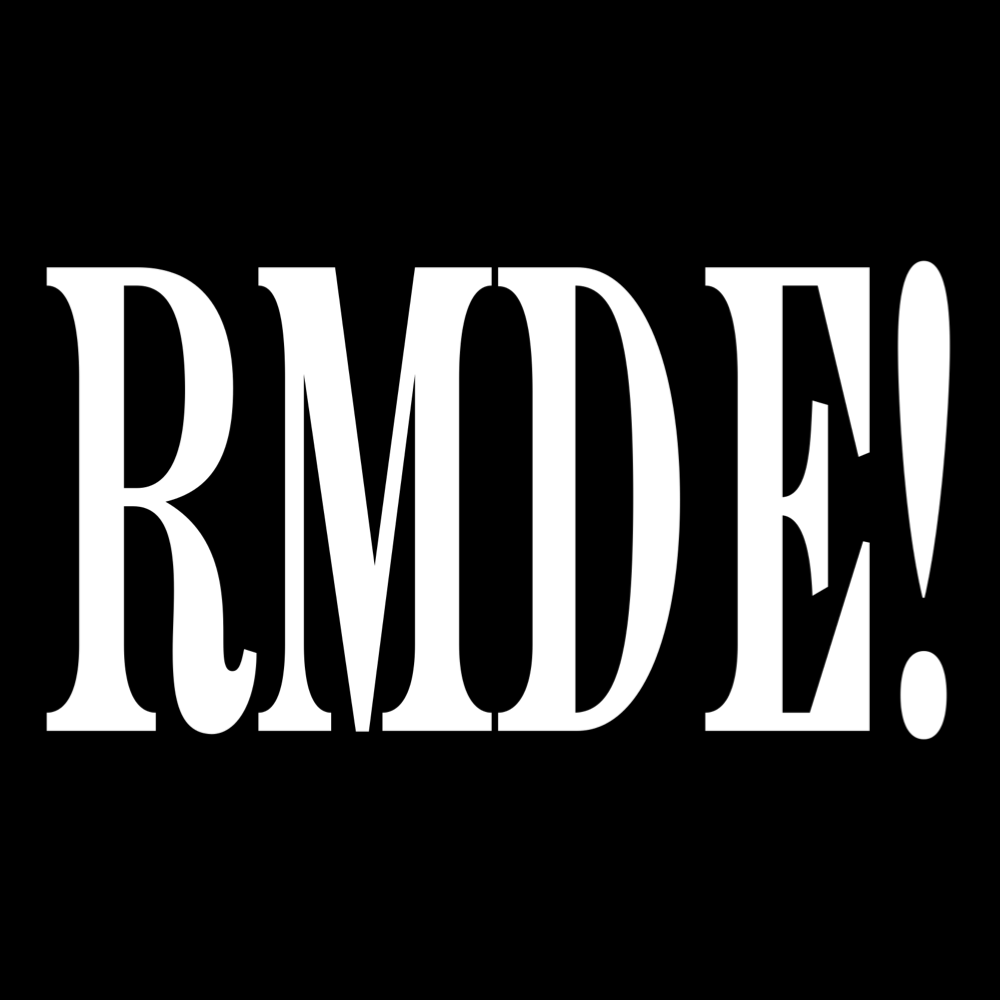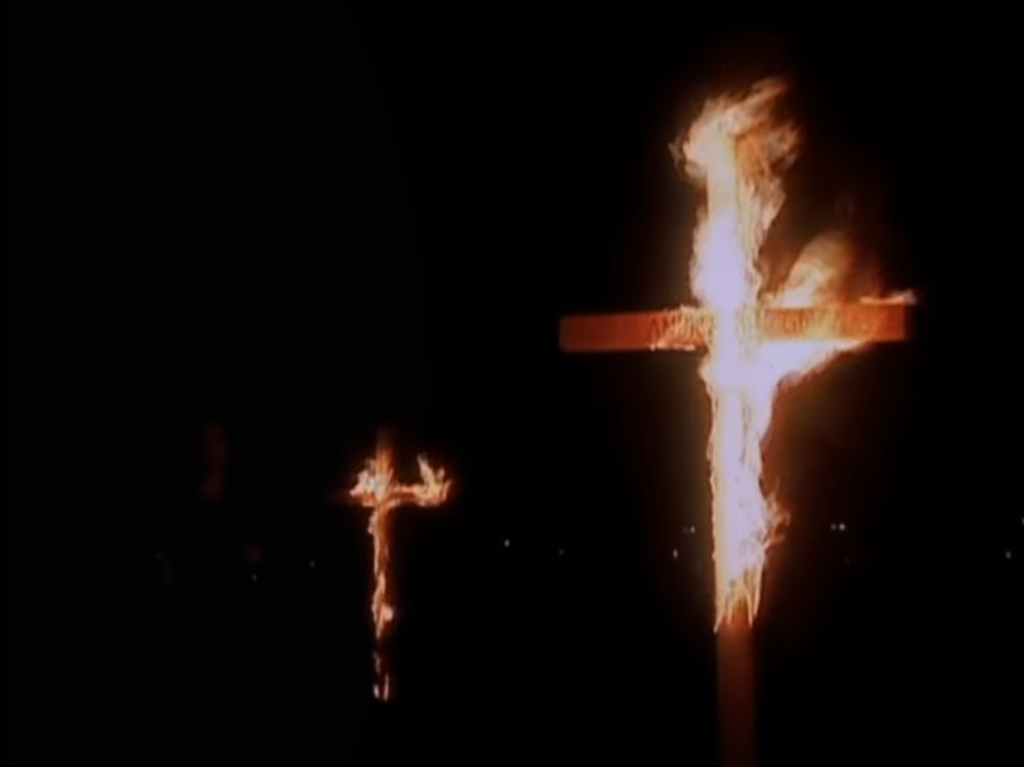There’s a deceptive simplicity to the construction of Zero Day. It brings together the most outstanding aspects of both Elephant and The Dirties while predating both of them. The starkness of Ben Coccio’s camera is unmatched, not a note of this film rings false. Every scene has a genuine rawness, by the end you forget it’s a film, it feels as though we are watching Dylan Klebold and Eric Harris’ basement tapes unfold before our eyes.
Told from the perspective of recordings taken over the course of a year, the film details the planning and execution of a school shooting by Cal (Cal Robertson) and Andre (Andre Keuck). We see their lives, various monologues directed to camera, petty squabbles, delusions of grandeur, the whole piece acting as a posthumous manifesto for the two.
In that description, it could feel like we’re watching some loosely put together metafiction, an attempt at intimate recreation of the Columbine shooters, but this film has far more on its mind than that. There is a distinct, sickly sense of humour to much of this film. In small moments, in juxtaposing cuts, a line here and there, in the construction of certain scenes. It’s never in your face as to keep the sense of reality, but this is a very thoughtfully put together film. Even in the film’s final moments they manage to find some humour in the moment when Cal and Andre can’t decide which way to count before they kill themselves. It may seem macabre to find the comic in a situation as violently cruel as this, but it is only honest to do so. There will inevitably be humour to find in these characters and to pretend it isn’t there is to miss the point in making a film of this kind.
The film’s status as total fiction also allows for a deeper exploration, not just in the characters’ psychologies, but in the wider intentions behind The Act beyond these two. One sequence in particular shines a light on what the Coccios’ intentions were in making this film. This is not mere provocation, or a quick reaction to the Columbine murders, but an attempt to understand how they think. Andre claims to have no motive for the killings he is about to commit, but the film itself is a document showing exactly why they’re doing it. Everything we’ve seen up to this point paints a picture of a dorky God complex. People don’t like Andre and Cal, they are, for lack of a nicer term, total losers. They claim to be better and smarter than those who came before them, but this portrait is a testament to the fact that all these types felt exactly the same way. “We see something beyond what others can, our act is great because we live up to that greatness.” The grand design falls apart at every turn. They have this idea that the fates will align and grant them permission to do what they feel they need to do, but, of course, Andre gets diarrhea the day of. It’s undeniably a little cartoonish to see this long mulled over plan collapse due to a bout of diarrhea, but is there not ample truth in that irony?
The whole film exudes this lame, dorky aura. Most of the hopeless moments in the film don’t actually come from the violence or the planning, but in everyday interaction. We see Cal socialize with others, a friend of his implying that maybe he would be able to flourish without Andre’s influence. This is an idea that I believe the film casts doubt on during the extended Prom sequence. Cal goes off to Prom with a group of acquaintances and his date. Andre skips Prom, as no one asked him to go, he cleans up at his job. In what is the most brutal editorial decision of the film, Coccio and editor David Shuff chose to intercut the two sequences. Cal, at first, seems to actually be enjoying himself, but soon he is gravitated back to Andre. Attached at the hip, he chooses to cut the moment short. The conclusion of this film was an inevitability, but only because Cal and Andre chose it to be so.
It is nigh impossible to discuss Zero Day without talking about its ending. Yes, it’s exactly what you think it is, but the staging of the sequence is horrifying in ways that I think go beyond the obvious. However, let’s start with the obvious. Visually, this very closely mimics the Columbine security footage. We see their savage acts from the vantage points of security cameras exclusively, the reality of the film shifts, but to a more stark, uncompromising place. There’s no glamour or attempt to soften the blow, you see it for what it is and it’s one of the ugliest pictures imaginable. But what really fascinated me here was the sound, in a decision that breaks the reality of the film up to this point, we hear every word of what Cal and Andre say. Theoretically impossible, but it’s so important that we continue to know what they’re thinking, it’s a film entirely about their thought process and Coccio rightly understands that excising that at the end, in favor of realism, would be a betrayal. The voice of, what I assume to be, a 911 operator adds this level of surreal dissonance. She repeats, over and over again, “Andre. Andre, can you pick up the phone” in this completely unaffected tone. There is a rhythmic nature to this repeated call and her moment to moment playback, also consistently repeated. It is difficult to express the effect it has in words, but it’s almost as sickening as the images portrayed on screen. It expresses hope that goes totally unanswered. In a way, it reminds me of the monotone, repeating verses in Einstein on the Beach, words, less interacting, more reacting to what’s happening.
The final sequence shows a group of men going to a memorial for the massacre, they burn Cal and Andre’s crosses. Having spent a features’ worth of time with the two, that final note does not feel like a desecration. It is the memorial they dreamed of.
4.5/5


Leave a comment